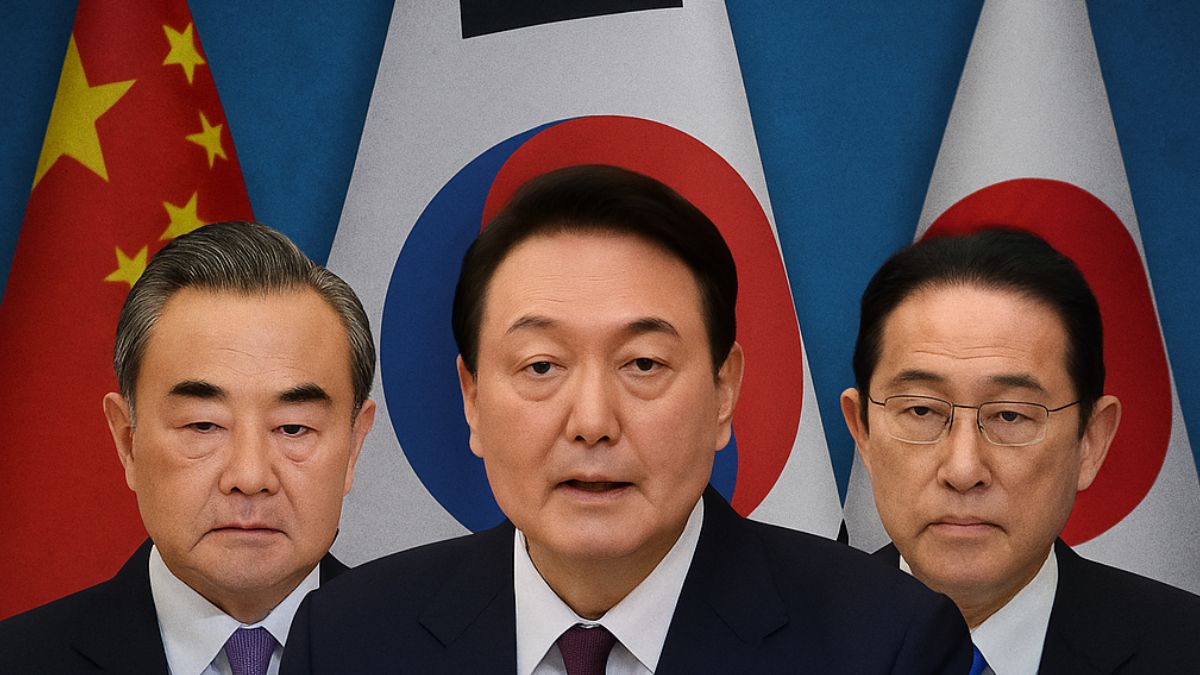
Seoul At The Center: China And Japan Step Up Diplomatic Engagements With South Korea
Seoul is suddenly at the heart of East Asia’s shifting geopolitics, featuring in milestone meetings in both Beijing and Tokyo.
At a time of shifting geopolitics in East Asia, South Korea has emerged as the common thread in two significant but unrelated diplomatic engagements: one in Beijing and another in Tokyo.
While China marked 33 years of ties with Seoul with calls for stability and deeper cooperation, Japan and South Korea turned the page on decades of animosity with their first joint statement in 17 years.
Together, these developments underscore Seoul’s growing role as a key diplomatic player navigating between major powers in a turbulent regional order.
What transpired in the China-South Korea meeting in Beijing?
China and South Korea marked the anniversary of their diplomatic relations with a meeting in Beijing between Chinese Foreign Minister Wang Yi and South Korean President Lee Jae-myung’s special envoy, Park Byeong-seug.
Wang emphasised that friendship, stability, and cooperation should define relations between the two countries, calling for both sides to “expand shared interests and properly handle sensitive issues.”
Highlighting the 80th anniversary of the victory in the Chinese People’s War of Resistance Against Japanese Aggression and the liberation of the Korean Peninsula, Wang said China would host solemn commemorations and welcomed South Korea’s participation. He also urged joint efforts to safeguard free trade, resist protectionism, and strengthen coordination at the United Nations.
Park, delivering a letter from President Lee to Chinese President Xi Jinping, reaffirmed South Korea’s commitment to the one-China stance and expressed readiness to deepen exchanges in education, youth, and trade. He stressed Seoul’s willingness to align with Beijing in maintaining peace and stability in the region.
What was the outcome of the Japan-South Korea meeting in Tokyo?
Meanwhile, in Tokyo, President Lee Jae-myung’s first overseas trip carried historic significance. Choosing Japan as his first stop, a departure from tradition, Lee met Japanese Prime Minister Shigeru Ishiba.
The two leaders issued their first joint statement in nearly two decades, pledging cooperation on artificial intelligence, trade, and denuclearisation of the Korean Peninsula. They also announced a joint task force to address demographic challenges like aging populations and declining birth rates.
What drew most attention, however, was the warmth between the leaders. “This is our second meeting, and I feel as if we are close friends,” Lee remarked, signaling a striking shift in tone given the fraught history of Japan’s colonial occupation of Korea.
Analysts note that both Tokyo and Seoul face uncertainty over their alliances with Washington amid US President Donald Trump’s unpredictable foreign policy. Concerns over North Korea’s nuclear buildup, Russia’s war in Ukraine, and China’s growing assertiveness around Taiwan are pushing Seoul and Tokyo closer together.
As Beijing emphasises stability and Tokyo embraces reconciliation, Seoul’s diplomacy is shaping regional balances in ways not seen in decades: positioning South Korea as a central player in East Asia’s evolving security and economic order.







